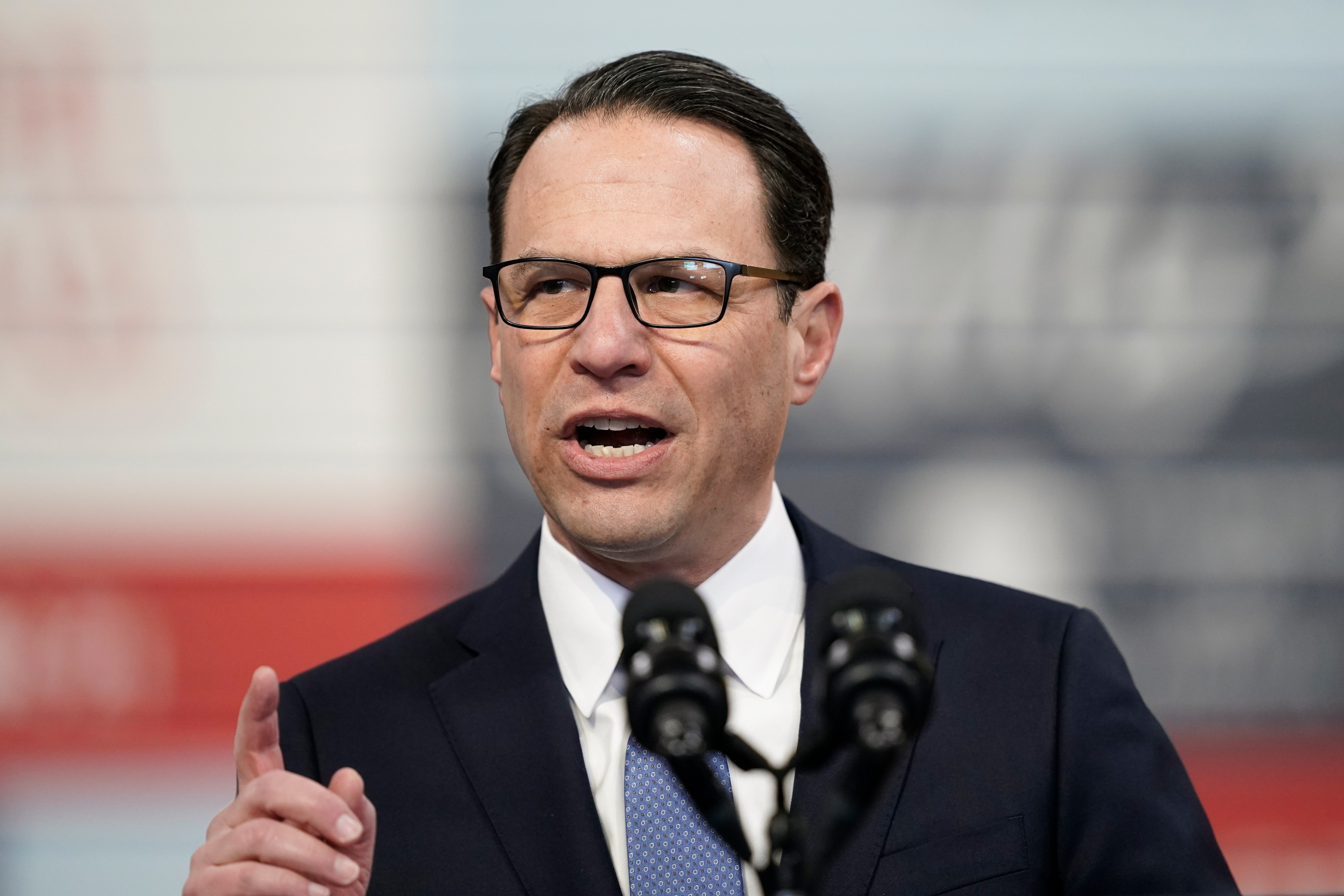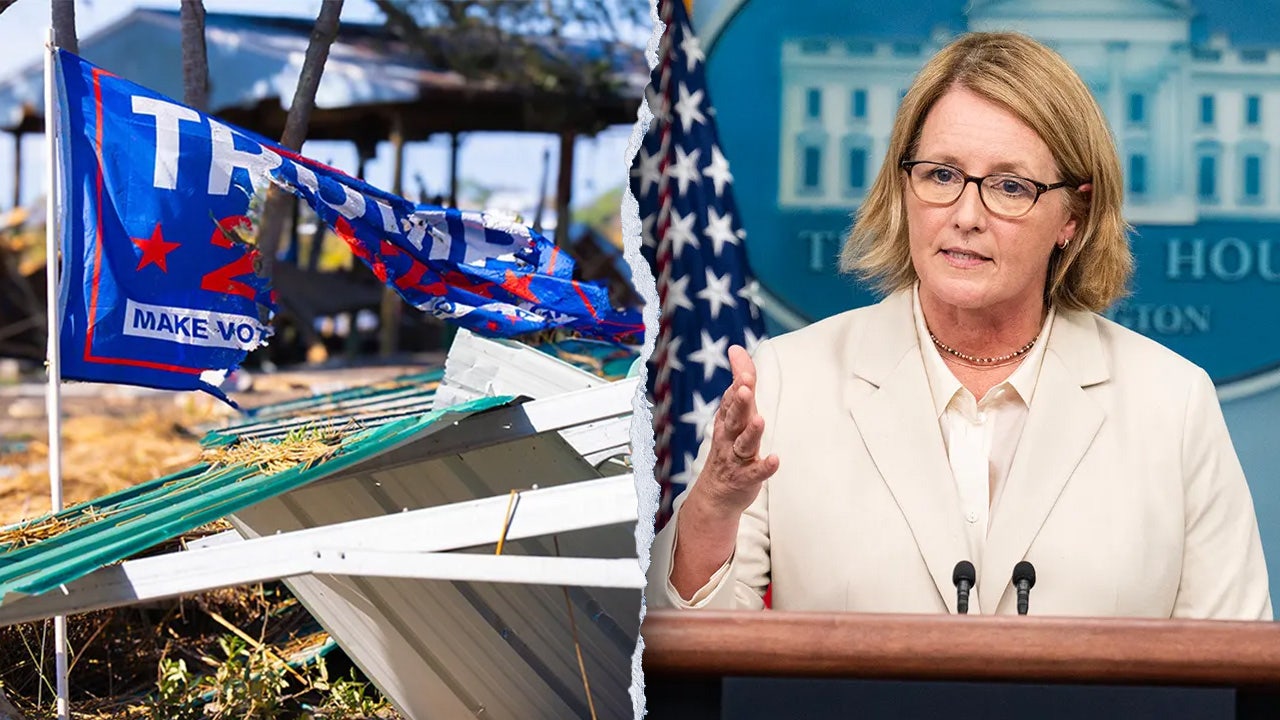World
Baker’s Claims of NCAA Athletes’ Labor Stance in Dispute

While testifying before a Senate Judiciary Committee last month, new NCAA president Charlie Baker sought to make the case that it isn’t just the association that opposes college athletes becoming employees of their institutions. The athletes, Baker submitted, are almost entirely in opposition, as well.
Relying on seven months’ worth of personal experience, Baker told lawmakers he had “talked to probably a thousand student-athletes since I got this job, and I haven’t talked to one yet [who] wants to be an employee. I think that’s important.”
The under-oath comment set off the BS detectors of NCAA skeptics inside and outside of college sports, including that of UCLA senior backup quarterback Chase Griffin.
“I think, in the literal sense, what Baker said is impossible,” said Griffin, who has become a leading advocate for college athletes profiting from their play. Griffin recently launched a newsletter called The Athlete’s Bureau, designed to “amplify the perspectives” of college athletes.
Baker’s anecdotal testimony was recently contravened by the findings of Bill Carter, a sports marketer who runs the NIL consulting firm, Student-Athlete Insights. Last week, Carter publicized the results of an email survey he says he conducted with a panel of 1,086 current college athletes, in which 73% were “in favor” of becoming employees of their institutions and more than half were “interested” in joining a college athlete union.
In a telephone interview, Carter acknowledged that his poll is not to be taken as a scientific survey, but said its revelations are likely to be much more representative of where college athletes stand on the employee question than what Baker conveyed to senators.
In last month’s hearing, Baker didn’t elaborate how he had determined, through interactions with athletes, the unanimity of their anti-employment sentiment. For example, was he simply extrapolating athletes’ disinterest by them not bringing the subject up? Had he regularly solicited their interest in the matter and, if so, in a dispassionate or open-ended manner? And what kinds of athletes had he been speaking to?
Recently, Sportico has repeatedly asked the NCAA for further clarification about Baker’s claim to Congress—as well as the association’s lack of more rigorous insights into the question of where athletes stand on the matter of employment, direct compensation and unionization.
The NCAA’s response has been largely tangential. Initially, its communications department provided copies of letters sent to members of Congress by Cody Shimp, chair of the Division I Student-Athlete Advisory Committee (SAAC), as well as four commissioners of HBCU conferences, which advocated against college athletes obtaining employee status.
When pressed further about what Baker said he gleaned from his personal athlete interactions, the NCAA suggested that he was basing his assessment on the formal positions of the SAAC groups.
“Since taking over as NCAA president eight months ago, president Baker has traveled across the country to listen to student-athletes from all three divisions, and it’s clear college athletes recognize he values and prioritizes their voices when it comes to leading the association,” an NCAA spokesperson told Sportico. “The student-athletes selected on their campuses across the country, in all three divisions, oppose an employment model and have called for action in Congress.”
In a joint telephone interview, Shimp and Morgan Wynne, the D-I SAAC vice chair, said their group was in lockstep with the NCAA’s leadership in their opposition to employment status. “I wouldn’t say there is daylight at all,” said Wynne, a former academic All-Big 12 softball player at Oklahoma State.
Wynne said Baker’s Congressional testimony about athlete sentiment is “fairly correct,” insofar as she discharges those in favor of employment status as being insufficiently informed on the issue.
“Student-athletes who have wanted this … don’t have the knowledge of what that really means,” she said. “They kind of think the benefits they have right now and protections all stay the same, and they get a salary on top of that. [The opinions change] once they are further educated on the potential catastrophic implications of this.”
Shimp, a former baseball player and current graduate assistant at St. Bonaventure, said he believes athlete employment will be cataclysmic for intercollegiate athletics.
“I am all for protecting the jewel of college sports, and I fear employment status for all student-athletes would take the jewel out of the crown and break the system,” he said.
However, Maddie Salamone—a former Duke Lacrosse player president and past Division I SAAC chair—warns about the peril of placing too much faith in the position statements of the NCAA-sanctioned student organizations, because they are reliant on the association and tend to skew representationally toward the non-revenue sports.
Out of its 32 members, the current D-I SAAC roster has three FBS football players, none of whom play for Power Five schools, and only one Power-Five men’s basketball player. Such revenue-sport participants are those most likely to benefit financially from a college sports system in which athletes are directly compensated by their schools.
“The fundamental problem with SAAC is not only can they not adequately speak for athletes,” Salamone said, “but they don’t have a mechanism to speak with every athlete within the NCAA.”
Salamone, who has testified before Congress on college sports reform issues, adds that SAAC leaders tend to be “fed information in a very skewed way by the NCAA,” which keeps the committees in line with the association’s ultimate desires.
On Thursday, the D-I SAAC plans to distribute an “educational document” to their campus representatives meant to spur conversation about what it will mean if college athletes become employees. Despite the opinions of SAAC leadership, Wynne insists the document is “not leading by any means for them to discern this is going to be a con rather than a pro.”
Shimp and Wynne told Sportico that while their group does have the resources to survey college athletes about employment, they have so far decided not to pursue it.
Arguably, the entity best positioned to poll the question—the NCAA’s research department—has so far not done so, at least not publicly. Mit Winter, a sports attorney and former college basketball player, says there’s a good reason why.
“They are not dumb,” Winter said. “They know if they put a poll out, there are going to be college athletes who want to be employees, especially if you ask every Power Five football player the question.”
When asked whether it would conduct such a survey in the future, the NCAA spokesperson was noncommittal.
“Under Charlie’s leadership, the association has and will continue to seek out and value student-athletes’ input and put forward policies that deliver them more benefits and greater support,” the spokesperson said.
In collaboration with a polling firm he declined to name, Griffin said The Athlete’s Bureau is currently in the field surveying its own cohort of at least 1,000 college athletes about their feelings toward employee status, revenue-sharing and unionization—all prospects that the NCAA has vehemently opposed, but have grown increasingly likely over the last few years.
He said he hopes to release the results within the next month.

World
G20 summit calls for more aid to Gaza and an end to the war in Ukraine
RIO DE JANEIRO (AP) — Leaders of the world’s 20 major economies called for a global pact to combat hunger, more aid for war-torn Gaza and an end to hostilities in the Mideast and Ukraine, issuing a joint declaration Monday that was heavy on generalities but short of details on how to accomplish those goals.
The joint statement was endorsed by group members but fell short of complete unanimity. It also called for a future global tax on billionaires and for reforms allowing the eventual expansion of the United Nation Security Council beyond its five current permanent members.
At the start of the three-day meeting which formally ends Wednesday, experts doubted Brazilian President Luiz Inácio Lula da Silva could convince the assembled leaders to hammer out any agreement at all in a gathering rife with uncertainty over the incoming administration of U.S. President-elect Donald Trump, and heightened global tensions over wars in the Mideast and Ukraine.
Argentina challenged some of the language in initial drafts and was the one country that did not endorse the complete document.
“Although generic, it is a positive surprise for Brazil,” said Thomas Traumann, an independent political consultant and former Brazilian minister. “There was a moment when there was a risk of no declaration at all. Despite the caveats, it is a good result for Lula.”
Condemnation of wars, calls for peace, but without casting blame
Taking place just over a year after the Oct. 7 Hamas attack on Israel, the declaration referred to the “catastrophic humanitarian situation in the Gaza and the escalation in Lebanon,” stressing the urgent need to expand humanitarian assistance and better protect civilians.
“Affirming the Palestinian right to self-determination, we reiterate our unwavering commitment to the vision of the two-State solution where Israel and a Palestinian State live side by side in peace,” it said.
It did not mention Israel’s suffering or of the 100 or so hostages still held by Hamas. Israel isn’t a G20 member. The war has so far killed more than 43,000 Palestinians in Gaza, according to local health officials, and more than 3,500 people in Lebanon following Israel’s offensive against Hezbollah, according to Lebanon’s Health Ministry.
The omitted acknowledgment of Israel’s distress appeared to run contrary to U.S. President Joe Biden’s consistent backing of Israel’s right to defend itself. It’s something Biden always notes in public, even when speaking about the deprivation of Palestinians. During a meeting with G20 leaders before the declaration was hammered home, Biden expressed his view that Hamas is solely to blame for the war and called on fellow leaders to “increase the pressure on Hamas” to accept a cease-fire deal.
Biden’s decision to ease restrictions on Ukraine’s use of longer-range U.S. missiles to allow that country to strike more deeply inside Russia also played into the meetings,
“The United States strongly supports Ukraine’s sovereignty and territorial integrity. Everyone around this table in my view should, as well,” Biden said during the summit.
Russian President Vladimir Putin did not attend the meeting , and instead sent his foreign minister, Sergey Lavrov. Putin has avoided such summits after the International Criminal Court issued a warrant that obliges member states to arrest him.
The G20 declaration highlighted the human suffering in Ukraine while calling for peace, without naming Russia.
“The declaration avoids pointing the finger at the culprits,” said Paulo Velasco, an international relations professor at the State University of Rio de Janeiro. “That is, it doesn’t make any critical mention of Israel or Russia, but it highlights the dramatic humanitarian situations in both cases.”
The entire declaration lacks specificity, Velasco added.
“It is very much in line with what Brazil hoped for … but if we really analyze it carefully, it is very much a declaration of intent. It is a declaration of good will on various issues, but we have very few concrete, tangible measures.”
Fraught push to tax global billionaires
The declaration did call for a possible tax on global billionaires, which Lula supports. Such a tax would affect about 3,000 people around the world, including about 100 in Latin América.
The clause was included despite opposition from Argentina. So was another promoting gender equality, said Brazilian and other officials who spoke on condition of anonymity because they weren’t authorized to speak publicly.
Argentina signed the G20 declaration, bit also had issues with references to the U.N.’s 2030 sustainable development agenda. Its right-wing president, Javier Milei, has referred to the agenda as “a supranational program of a socialist nature.” It also objected to calls for regulating hate speech on social media, which Milei says infringes on national sovereignty, and to the idea that governments should do more to fight hunger.
Milei has often adopted a Trump-like role as a spoiler in multilateral talks hosted by his outspoken critic, Lula.
Concrete steps for fighting global hunger
Much of the declaration focuses on eradicating hunger — a priority for Lula.
Brazil’s government stressed that Lula’s launch of the global alliance against hunger and poverty on Monday was as important as the final G20 declaration. As of Monday, 82 nations had signed onto the plan, Brazil’s government said. It is also backed by organizations including the Rockefeller Foundation and the Bill & Melinda Gates Foundation.
A demonstration Sunday on Rio’s Copacabana beach featured 733 empty plates spread across the sand to represent the 733 million people who went hungry in 2023, according to United Nations data.
Viviana Santiago, a director at the anti-poverty nonprofit Oxfam, praised Brazil for using its G20 presidency “to respond to people’s demands worldwide to tackle extreme inequality, hunger and climate breakdown, and particularly for rallying action on taxing the super-rich.”
“Brazil has lit a path toward a more just and resilient world, challenging others to meet them at this critical juncture,” she said in a statement.
Long-awaited reform of the United Nations
Leaders pledged to work for “transformative reform” of the U.N. Security Council so that it aligns “with the realities and demands of the 21st century, makes it more representative, inclusive, efficient, effective, democratic and accountable.”
Lula has been calling for reform of Security Council since his first two terms in power, from 2003 to 2010, without gaining much traction. Charged with maintaining international peace and security, its original 1945 structure has not changed. Five dominant powers at the end of World War II have veto power — the U.S., Russia, China, Britain and France — while 10 countries from different regions serve rotating two-year terms.
Virtually all countries agree that nearly eight decades after the United Nations was established, the Security Council should be expanded to reflect the 21st century world and include more voices. The central quandary and biggest disagreement remains how to do that. The G20 declaration doesn’t answer that question.
“We call for an enlarged Security Council composition that improves the representation of the underrepresented and unrepresented regions and groups, such as Africa, Asia-Pacific and Latin America and the Caribbean,” the declaration said.
The United States announced shortly before a U.N. summit in September that it supports two new permanent seats for African countries, without veto power, and a first-ever non-permanent seat for a small island developing nation. But the Group of Four – Brazil, Germany, India and Japan – support each other’s bids for permanent seats. And the larger Uniting for Consensus group of a dozen countries including Pakistan, Italy, Turkey and Mexico wants additional non-permanent seats with longer terms.
___
Associated Press writers Aamer Madhani in Rio de Janeiro, Edith M. Lederer at the United Nations and Isabel DeBre in La Paz, Bolivia contributed.
World
Foul play ruled out month after body of Walmart employee found inside walk-in oven at Canada store

A month after the body of a Walmart employee was found inside a walk-in oven of a store in eastern Canada, police have determined that her death was not suspicious.
The Halifax Police Department released a statement to announce that an investigation into the death of the 19-year-old woman, who was found inside the walk-in oven of the Halifax Walmart on Oct. 19, was not suspicious and there was no evidence of foul play.
“We do not believe anyone else was involved in the circumstances surrounding the woman’s death,” Halifax Regional Police Constable Martin Cromwell announced in a video update on the department’s Facebook page on Monday.
Cromwell added that they did not have many details they could share and did not expect any other updates anytime soon.
WALMART EMPLOYEE FOUND DEAD INSIDE WALK-IN OVEN AT CANADA STORE: POLICE
Authorities in Canada are continuing an investigation into the death of a 19-year-old employee at a Halifax Walmart bakery after police said there was no evidence of foul play. (Robyn Beck/AFP via Getty Images/File | GoFundMe)
“We acknowledge the public’s interest in this case and that there are questions that may never have answers,” said Cromwell. “Please be mindful of the damage public speculation can cause. This woman’s loved ones are grieving.”
Police have not yet released the name of the victim. However, the Gurudwara Maritime Sikh Society, an organization for Sikh immigrants, has identified the woman as Gursimran Kaur.
The group also created a GoFundMe page, which is no longer running, that raised more than $194,000 for Kaur’s family.
“Gursimran Kaur was only 19 years old, a young beautiful girl who came to Canada with big dreams,” a post on the website read.
IDENTITY OF ‘BADLY DECOMPOSED’ BODY FOUND IN OHIO CAR WASH RELEASED: REPORT

A woman was found dead inside a large walk-in oven at a Walmart store’s bakery department in Canada. (Robyn Beck/AFP via Getty Images/File)
According to the post, Kaur and her mother both worked at Walmart for the last two years.
During the evening of her daughter’s disappearance, the society executive said Kaur’s mother tried to find her after not having contact with her for an hour but brushed it aside, assuming she was helping a customer.
Kaur’s phone was reportedly also not reachable.
“Mother started panicking as it was unusual for her to switch her phone off during the day. She reached out to the onsite admin for help,” the post continued.
MISSOURI INFANT DIES AFTER MOTHER ‘ACCIDENTALLY’ PLACES BABY IN OVEN INSTEAD OF CRIB: POLICE

It’s unclear how the woman died, authorities said. (KTTV)
Sadly, after a few hours, her daughter’s body was found inside a walk-in oven in the store’s bakery.
“Imagine the horror that her mother experienced when she opened the oven, when someone pointed it out to her!” the society executive described. “This family’s sufferings are unimaginable and indescribable.”
Both Kaur’s father and brother were both reportedly in India at the time of her death.
“Investigators met with family to share this update and extend condolences,” Halifax police said. “Our thoughts remain with them at this difficult time.”
A spokesperson for Walmart previously told Fox News Digital that the store “will be closed until further notice.”
The Canadian Broadcasting Corp. reported that the store reopened on Monday and that the bakery oven was being removed from the store.
Fox News Digital reached out to Walmart for comment on the latest news but did not immediately receive a response.
Stepheny Price is writer for Fox News Digital and Fox Business. Story tips and ideas can be sent to stepheny.price@fox.com.
World
Hong Kong jails all 45 pro-democracy activists in largest security case

BREAKINGBREAKING,
Academic Benny Tai sentenced to 10 years, while others receive sentences of between four and seven years.
Taipei, Taiwan – A Hong Kong court has sentenced a leading pro-democracy advocate to 10 years in prison and handed dozens of other activists jail terms of between four and seven years in the Chinese territory’s largest national security case.
Benny Tai, a legal scholar who played a leading role in Hong Kong’s 2019 antigovernment protests, was handed the lengthy sentence on Tuesday after prosecutors cast him as the “organiser” of a conspiracy by pro-democracy activists and politicians dating back to July 2020.
Tai and 44 others were previously found guilty of offences related to organising an official primary election to choose pro-democracy candidates for the city’s legislature.
The would-be legislators had hoped to vote down the city’s budget and force the city’s leader to dissolve the legislature.
Prosecutors alleged that the group plotted to “overthrow” the government.
Many of those arrested have been on remand since 2021, when they were first charged, due to numerous legal delays and the disruption caused by COVID-19.
Out of 47 defendants, 31 pleaded guilty.
In May, a court found 14 of the remaining activists guilty of subversion and acquitted two others, former district councillors Laurence Lau and Lee Yue-shu.
Under Hong Kong’s national security laws introduced in 2020, defendants charged as “primary offenders” face a maximum punishment of life imprisonment, while lower-level offenders and “other participants” face sentences of between three and five years and up to three years, respectively.
-

 Business1 week ago
Business1 week agoRef needs glasses? Not anymore. Lasik company offers free procedures for referees
-

 News1 week ago
News1 week agoHerbert Smith Freehills to merge with US-based law firm Kramer Levin
-
/cdn.vox-cdn.com/uploads/chorus_asset/file/25724877/Super_Nintendo_World.png)
/cdn.vox-cdn.com/uploads/chorus_asset/file/25724877/Super_Nintendo_World.png) Technology1 week ago
Technology1 week agoThe next Nintendo Direct is all about Super Nintendo World’s Donkey Kong Country
-
Business5 days ago
Column: OpenAI just scored a huge victory in a copyright case … or did it?
-

 Health5 days ago
Health5 days agoBird flu leaves teen in critical condition after country's first reported case
-

 Business2 days ago
Business2 days agoColumn: Molly White's message for journalists going freelance — be ready for the pitfalls
-

 Technology1 week ago
Technology1 week agoHow a researcher hacked ChatGPT's memory to expose a major security flaw
-
Politics1 week ago
Editorial: Abortion was on ballots across the country in this election. The results are encouraging



















